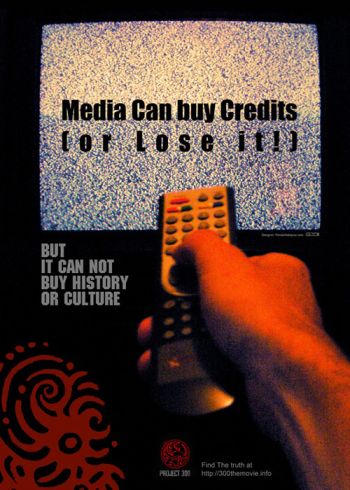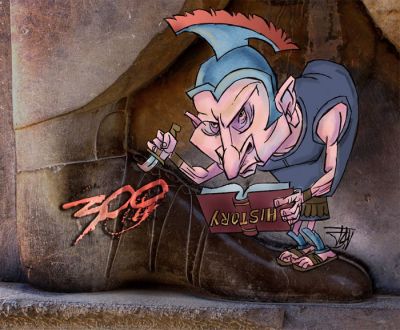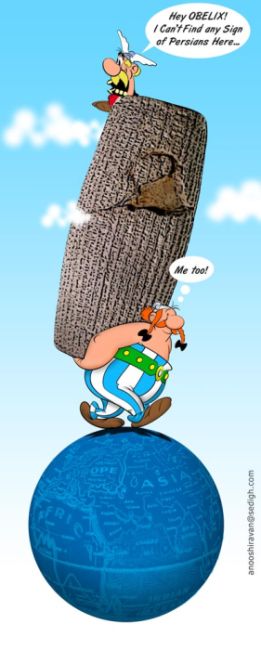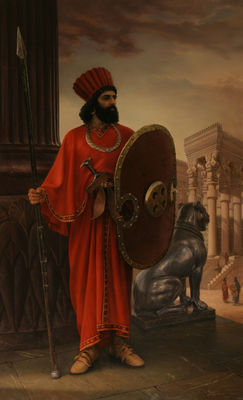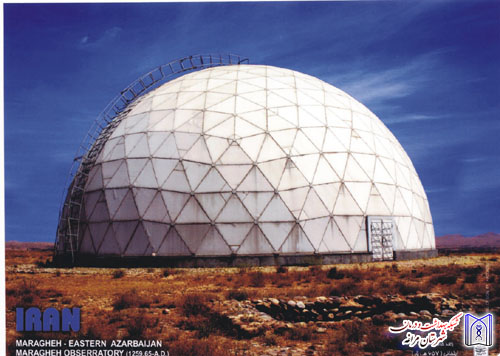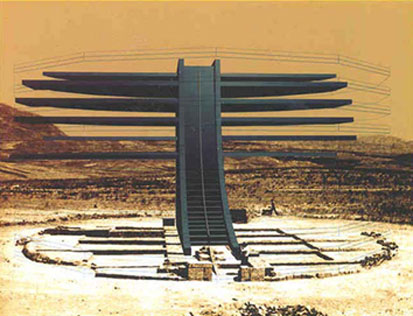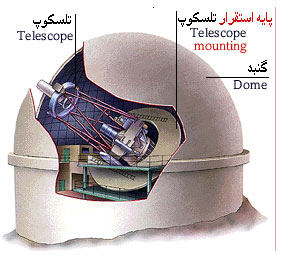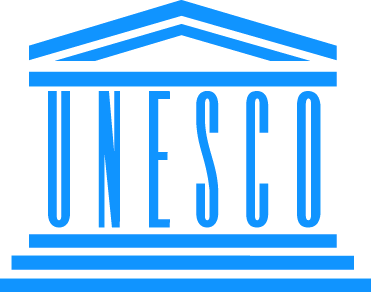
The Battle of Thermopylae was of course written by the classical Greek author, Herodotus, who lived in the Persian city of Halicarnassus. His book, 'The Histories' became part of Western folklore only recently. It was not until about 1850 that America embraced Herodotus as the leading authority on Persian history.
Before 1850, however, the West had a very favorable impression of the Persian Empire. That's because the West's main source for Persian history was the Bible and the 'Cyropaedia,' written by another Greek author named Xenophon.
But the Cyropaedia glorified the monarchy of Cyrus The Great, and in the wake of two bloody revolutions fought by America and France to liberate themselves from their own monarchies, a major campaign began, around the mid 19th century, to promote democracy throughout the rest of Europe, and Herodotus was the perfect propaganda tool.
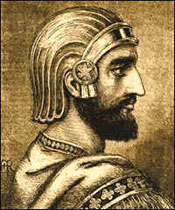
The story is easy to buy into: 300 brave Spartans saved Western democracy from 2.7 million evil Persians. But aside from the fanciful numbers which need decimal-point adjustments, this whimsical tale has far graver consequences than a mere biased account of history.
The 'Battle Of Thermopylae' has been the single most powerful wedge, which has divided East and West for over 2 millennia. In a time when East and West should be reconciling their differences, along comes the movie '300' to drive that wedge even deeper.
What is most disturbing about this movie is not that it lacks historical accuracy. It is not that Xerxes, the Grandson of Cyrus The Great and loving husband of Esther, is shown as an oversized drag queen. It is not even the outdated racist cliché of casting the Persians as Africans and the Spartans as white, blue-eyed 'Chippendale dancers,' when in reality the roles may well have been reversed.
What is so distressing about this movie is the realization of the tremendous power Hollywood wields in determining a people's identity. It is the same nightmare Native Americans endured during the whole 'cowboy-movie' genre.
But for those who are quick to dismiss '300' as a fleeting fantasy flick aimed at the insignificant, 17 to 24 year-old male video-gamer, think again. First there was Alexander, now '300,' next could well be the 'Battle Of Marathon,' another one of Herodotus's glowing accounts of ancient Persia.
Herodotus is accepted blindly by virtually all Western demographics. Even the New York Times is not immune. Here is how it described the Persians in its April 20, 2004 issue about the Battle Of Marathon:
"the defeat of a ruthless state (Persia) that had enslaved much of the known world from the Balkans to the Himalayas."
William J. Broad_NY Times
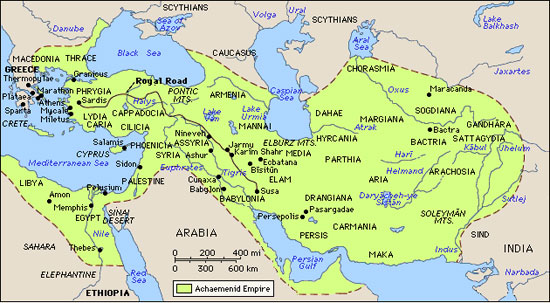
"the ancient Greeks defeated the Asian invaders (Persia) and saved Europe in what scholars call one of the first great victories of freedom over tyranny".
William J. Broad_NY Times
What stretches the limits of hypocrisy is that there isn't a single shred of archeological evidence that the Persians ever owned slaves. Yet we know that slavery was an integral cornerstone of Greek society. Aristotle's manifesto even sanctions it. Persia, which was once a haven for runaway slaves from Egypt, Greece, and later Rome, is today branded as a slave-hungry empire by cultures which were built on slavery!
What makes Herodotus's propaganda so difficult to refute is that it is peppered with facts. But in reality, it is a desperate diatribe. Perhaps his biggest ploy is his attempt to equate democracy with freedom. These two words are used virtually interchangeably throughout his book. And the West has swallowed it hook-line-and-sinker.
But America's founding fathers knew better. They implemented many safeguards to protect freedom from the pitfalls that mired Athenian democracy. Even Winston Churchill said, "Democracy is the worst form of government except for all the others which have been tried."
Democracy may well be the best form of government. But what makes America great is not so much democracy, as it is its Bill Of Rights. And this is exactly what made Persia Great. Democracy can often lead to tyranny by the majority as was the case in democratic Athens, where women, slaves and foreigners did not have the right to vote.
In monarchic Persia, however, women enjoyed a level of gender equality unmatched even to this day, and slavery was not practiced. The fact is, Persia's monarchy was more free than Athens' democracy, all because of Persia's Bill Of Rights.
No one exemplifies Persia's freedom better than Herodotus himself. He describes Athens as the bastion of freedom, yet he chose to live in Persia. Xenophon, on the other hand, who actually lived in Athens, reminisces enviously about the monarchy of Cyrus The Great.
Herodotus claims Persia had enslaved most of the known world, yet we know Herodotus was not a slave. He traveled freely throughout the empire, openly criticizing it.
Why did Herodotus not live in Greece? Because Persia - the empire he is so quick to demonize - afforded him the very freedom to publish his scathing report of it. People want to live where their god-given rights are protected, regardless of whether its democratic or monarchic.
These god-given rights were first drafted into law by the founder of the Persian empire, Cyrus The Great. In fact, ancient Persia may well have served as the blue print for America's Bill Of Rights. Both Thomas Jefferson and James Madison, the architects of America's Constitution, were great admirers and owned several copies of Xenophon's Cyropaedia.
Today, no other country resembles ancient Persia as closely as does the United States. If any country should sympathize with, rather than celebrate, Persia's quagmire in Greece, it is the United States. Few events in history mirror America's war on terror as closely as Persia's war on Greece.
The Greeks had been carrying out terrorist attacks on Persian holdings for years. They had attacked Persian cities, set fire to Persian temples, disrupted key trade routes, and pirated merchant ships crossing the Bosphorus. They incited rebellions inside Persian provinces, but perhaps most abhorrent to the Persians was the ease by which the Greeks broke their treaties and betrayed Persia's trust.
Rather than resort to violence, however, Persia tried to keep the Greeks in check by financially supporting Greek politicians who were "pro-Persian," much the same way America fights its proxy wars. But what finally triggered Persia's wrath was an act rarely mentioned in the West, though well documented, even by Herodotus (7:11).
Persia's 9/11:
In 498 BCE, Athens carried out a terrorist attack on Sardis, a major Persian city, which made 9/11 seem like child's play. Aristagoras, an Athenian, set fire to the "outlying parts" of Sardis trapping most of its population "in a ring of fire." (Herodotus 5:101)
More innocent civilians died at the hands of Aristagoras than Osama bin Laden could ever hope to kill. And just as most of the world supported America's retaliation against Al Qaeda, so did it rally in support of Persia's attack on Athens.
The Spartans were not even targets of Persia's attack, until they violated a universal protocol by killing a Persian messenger who Herodotus claims was asking for Sparta's submission but in reality was probably sent by Persia's king, Xerxes to convey the same message America sent to the entire world after 9/11: "you're either with us, or against us."
The Spartans were Greek Jihadists who lived only to die. They were by all accounts ruthless savages who murdered Greek slaves known as "Helots" just for sport, cultivated a culture of thievery and rape, and practiced infanticide, as the movie '300' rightly points out in its opening scenes. Sparta was not even democratic. It was an oligarchy at best. Despite knowing all this, the West continues to hail the Spartans as the saviors of Western democracy.
Yes, the Spartans died fighting a foreign invader. But so do countless terrorists. Yet few would consider them "good guys." Those who do are then not much different from Westerners who cheer for the Spartans.
Persia was drawn into a protracted war against terror, much the same way the U.S. was. Cheering for the Spartans merely because they were underdogs, is like cheering for Osama bin Laden today.
The Power Of Film:
History is no longer written by the victors, it is written by filmmakers. Most minority groups in America have come to realize this fact and are quick to bankroll films that communicate their stories to the rest of the world. Perhaps the movie '300' was a necessary wake-up call for the Iranian/Persian community to support responsible filmmakers, who report history with honesty and integrity.
Alex Jovy's epic movie about Cyrus The Great could have done wonders for the Iranian image (www.chahayagroup.com). But Alex Jovy's movie today sits idle due lack of money. My documentary film about Cyrus The Great has languished for a mere want of $400,000 (www.spentaproductions.com/cyruspreview.htm).
Iranians are the most affluent minority group in America. If they set their mind to it, they could set the historical record straight virtually overnight. Until then, their history will be written by the likes of Zack Snyder.
